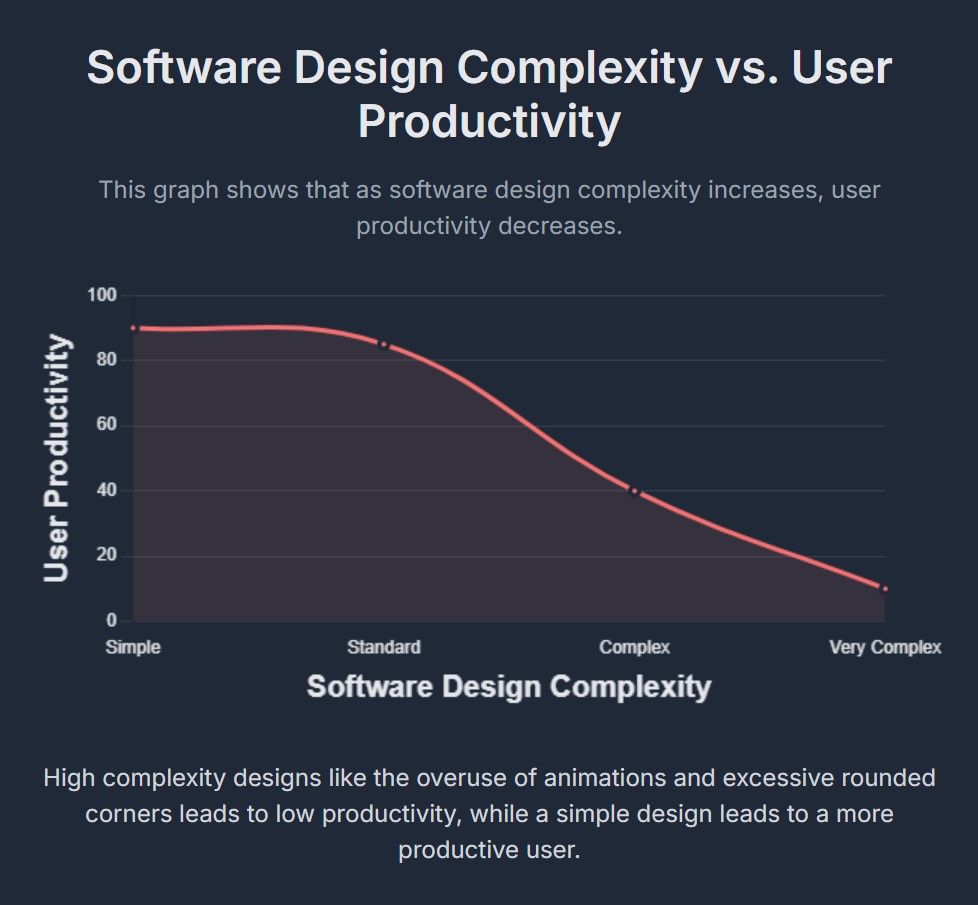In a world where software seems to grow ever more complex, bloated, and visually overwhelming, it's worth revisiting a timeless principle that champions the exact opposite: KISS – Keep It Simple, Stupid. This is a profound reminder, often attributed to Lockheed engineer Kelly Johnson, that the most effective designs and systems are those that are kept as straightforward and uncomplicated as possible. The "stupid" refers to the simplicity of the solution, not the intelligence of the user or the developer.
The KISS principle advocates for elegance through minimalism, arguing that unnecessary complexity is the enemy of reliability, maintainability, and usability.
KISS in Software Programming: Building Robust Foundations
At the code level, adhering to KISS is paramount for creating resilient and efficient software.
-
Easier to Understand and Read: Simple code is inherently more readable. When a new developer joins a project, or when you revisit your own code months later, straightforward logic is immediately comprehensible. This reduces the time and effort required to grasp the codebase, fostering better collaboration.
-
Reduced Bugs and Easier Debugging: Complexity breeds errors. The more intricate a system, the more potential points of failure exist, making bugs harder to prevent and even harder to find. Simple, modular code has fewer hidden interactions, making it easier to pinpoint and resolve issues quickly.
-
Improved Maintainability and Scalability: Simple systems are easier to maintain, modify, and extend. When you're not bogged down by convoluted structures or excessive abstractions, adding new features or adapting to changing requirements becomes a much smoother process. This also contributes to better scalability, as simple components are easier to replicate and distribute.
-
Avoidance of Over-Engineering: The KISS principle actively discourages "over-engineering" – building features or infrastructure that aren't immediately necessary. This prevents wasted development time, reduces technical debt, and keeps the focus on delivering core value efficiently.
KISS in Software Design (UI/UX): Empowering the User
The benefits of KISS extend directly to the user interface and user experience (UI/UX). A simple interface is a respectful interface.
-
Clear, Intuitive Layouts: Just like a well-designed physical tool, a simple UI is one where elements are clearly defined, their purpose is obvious, and navigation is intuitive. There's no need for excessive visual flair or hidden gestures; the path to accomplishing a task is clear and direct.
-
Reduced Cognitive Load: Complex interfaces overwhelm users with too many options, too much visual noise, or inconsistent interaction patterns. A KISS-inspired UI minimizes cognitive load, allowing users to focus their mental energy on the task at hand, rather than on deciphering the software itself.
-
Enhanced User Productivity: A simpler design directly translates to increased productivity. By reducing visual clutter, unnecessary animations, and complex navigation menus, a simple UI allows users to find what they need and complete their tasks with less friction and in fewer steps. This efficiency not only saves time but also reduces frustration, making the user's experience more rewarding and effective.
-
Faster Learning Curve and Increased Satisfaction: When a product is simple to understand and use, new users can get up to speed quickly, leading to immediate satisfaction. This ease of adoption fosters loyalty and reduces the need for extensive training or support. Think of the uncluttered efficiency of Google's search page, or the straightforward operation of a well-designed physical appliance.
-
Focus on Essential Features: A core tenet of KISS in UI/UX is to be selective with features. Instead of adding every conceivable function, focus on the most critical ones that solve the user's primary problem. This prevents feature bloat, which can make software feel cumbersome and inefficient.

The Broader Impact: Efficiency, Cost, and Trust
Embracing the KISS principle throughout the software lifecycle leads to tangible benefits beyond just the code and interface. It results in faster development cycles, lower maintenance costs, and ultimately, a more reliable and enjoyable product. When software is simple, it builds trust; users feel empowered, not frustrated, and are more likely to integrate it seamlessly into their daily workflows.
In an era where complexity often masquerades as innovation, the KISS principle serves as a powerful antidote. It reminds us that true sophistication often lies in simplicity, and that by striving for clarity and efficiency, we can build software that genuinely serves humanity, rather than just showcasing the latest design trends.